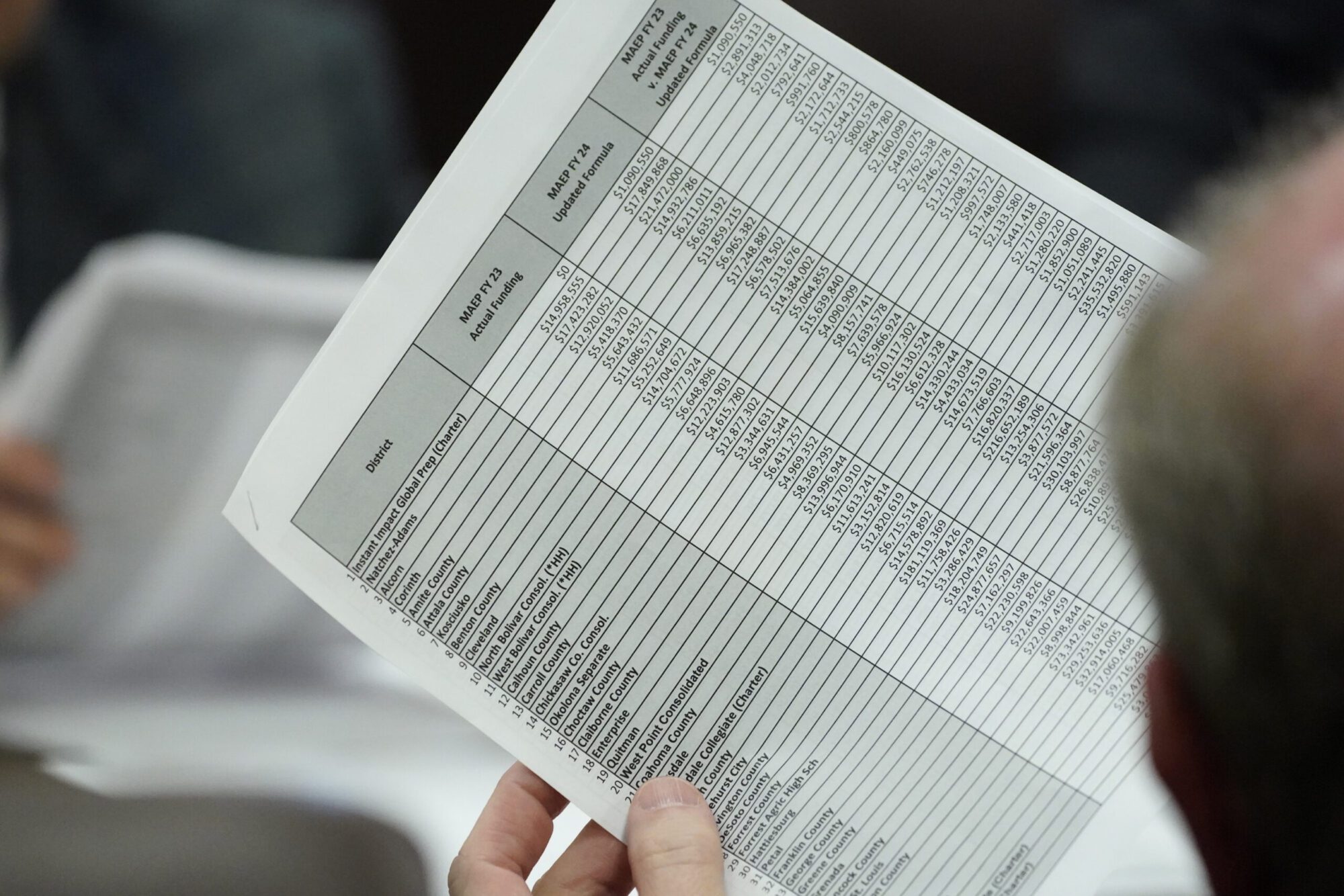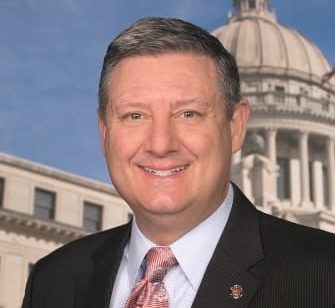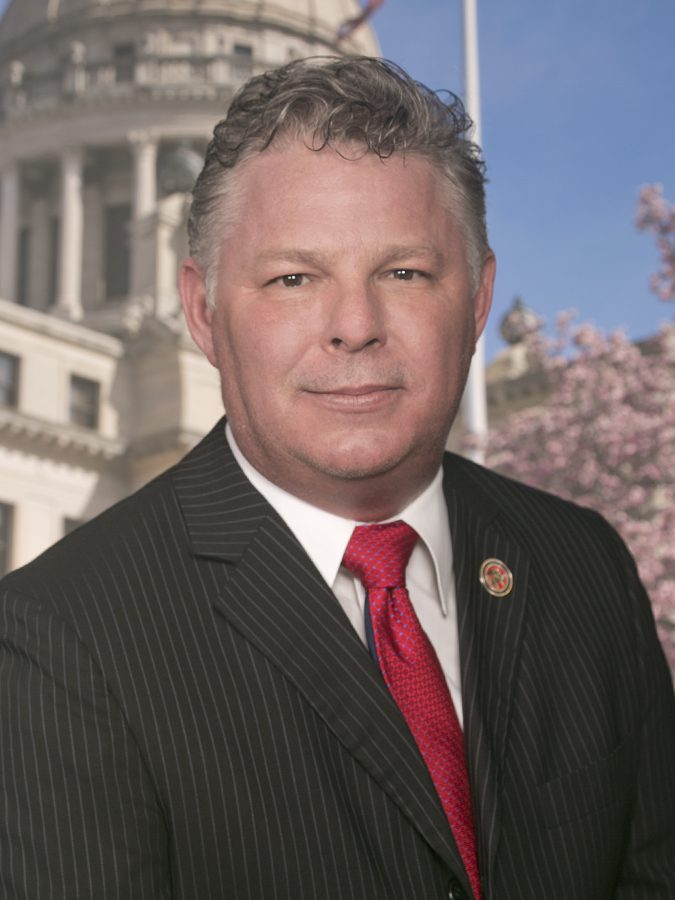
A Senate Appropriations Committee member reviews proposed legislation at the Mississippi Capitol in Jackson. (AP Photo/Rogelio V. Solis - Copyright 2023 The Associated Press. All rights reserved.)
- House, Senate Education Committee chairmen plan to study the latest findings as they work to maximize dollars going to students.
A report from State Auditor Shad White’s office shows that spending on administrative positions in Mississippi’s public education system continues to outpace in-classroom spending even as student enrollment is on the decline.
White’s report, issued in March of this year, states similar findings from reports in previous years.
In 2019, a report found that from 2006 to 2016 education spending “failed to focus spending inside classrooms where it matters most,” noting that “administrative spending went up while the number of teachers and students went down.” According to the 2019 report, if spending on expenses outside the classroom had remained level during that decade, $358 million could have been used to fund teacher pay raises annually.
When compared to other states in the South, Mississippi’s school districts spent more by percentage on administrative costs, according to the 2019 report.

The most recent report released in March by the State Auditor, which used data from the National Center for Education Statistics, indicates that the trend has continued. Mississippi spends 9.59 percent of education funding on administrative expenses. For the sake of comparison, Florida spends 6.42 percent and the regional average is 8.20 percent. Louisiana comes in just under Mississippi at 9 percent.
If a change is made, the report states, “Mississippi could invest over $144 million per year into public school classrooms by reaching the national average for percentage of education funds spent inside the classroom,” providing pay raises of $4,500 to every teacher in the state.
The spending data comes at a time when average daily student attendance is on the decline, down about 60,000 between 2006 to 2021. The Auditor’s report adds that while spending on administration increased, spending in the classroom declined.
“For the period of AY 2006 to AY 2021, when adjusted for inflation, administrative spending in Mississippi grew by 6.51 percent while inside the classroom spending dropped by 7.76 percent,” the State Auditor reports. “Some administrative salaries in school districts—particularly those of superintendents—exceed even the salary of Mississippi’s governor.”
When total spending outside the classroom is the focus, Mississippi still ranks high, with 28.05 percent of its total education budget going to such expenses. Maryland was cited as the lowest fir outside the classroom spending at 20.63 percent. States that spent more than Mississippi outside the classroom include Louisiana at 28.30 percent, Oklahoma at 28.82 percent and the District of Columbia at 29.53 percent.
In addition to administrative salaries remaining high, the Auditor’s report indicates another reason for the disparity in spending – “inefficient procurement processes” and “inefficient use of technology that has been purchased,” in addition to the maintenance of unnecessary buildings and property.
During the legislative session this year, a new funding formula for K-12 education was adopted and signed into law by the Governor. It provides more funding for schools, to the tune of about $230 million. The bill, HB 4130, included the stipulation that the additional funding could not be used for administrative pay, indicating the Legislature’s priority of ensuring more dollars reach the classroom.

State Representative Rob Roberson (R) said he’s seen the Auditor reports in previous years and this year’s findings bring up valid points that need to be addressed. State Senator Dennis DeBar (R) agrees the report needs to be looked at further.
“We will take a look at the report as we begin crafting legislation for the 2025 session,” Senator DeBar told Magnolia Tribune this week. “We want to maximize dollars going to our students in our classrooms.”
DeBar chairs the Senate Education Committee, while Roberson chairs the Education Committee in the House.
After reading the report, Rep. Roberson said he intends to sit down with Auditor White to get additional information on how the report was compiled to ensure an apples-to-apples comparison is being made.
“Because it’s easy to make a blanket statement; it’s hard to actually come in with solutions to help our teachers, help our students, help our principals and help our superintendents of our districts to make certain they are getting the best bang for their buck,” Rep. Roberson said.
“Obviously when you have a reduction of student population you’re going to have an increase in cost per administrative staff member,” Roberson added.

No matter how many students are in a school district, administrative positions such as superintendents and principals are still needed. But Rep. Roberson has an idea that might not be popular – reducing the number of administrative positions in an area, such as a county.
“If you consolidate a school district that has 500 kids, and another with 500 kids, especially if they are in the same county, and go to one administrator over both, you’ve reduced whatever costs are involved,” Roberson elaborated. “Eventually that would be the direction we go unless I can find a reason as to why we shouldn’t.”
While consolidation is up for debate, Roberson said he does not intend to take knee jerk actions. Instead, he plans to look into the matter further to see if there might be too many assistants, such as assistant principals, assistant superintendents, or even too many secretaries.
“I don’t want to get rid of people for the sake of getting rid of people,” Rep. Roberson said. “But I do want to get us to a point where we’re being effective with the dollars that are being spent and make certain that those dollars are being spent on the purpose that we intended. And my purpose is making sure these kids are getting the best education they can get. Period.”
According to the Auditor’s report, when more money is funneled into the classroom, National Assessment of Educational Progress scores for eighth grade reading and math increase.
A suggestion to solve the problem provided in the report involves school districts seeking approval from the State Board of Education when they want to increase administrative spending, even when student numbers are declining.
When asked about White’s findings, the Mississippi Department of Education responded by saying, “Funding decisions are local district decisions. Local school boards approve districts’ administrative pay.”
Rep. Roberson noted that while he likes the idea of allowing each district to make those financial decisions, as things are done now, it might be best for the Legislature to take up that responsibility since 70 percent of a district’s funding comes from the state. With a majority of the revenue coming from state coffers, Roberson wants to ensure those funds are being managed properly.
“I don’t think it’s fair for us to hide behind MDE,” Roberson added.
Even though a funding increase was passed this legislative session, the House Education Chairman is not against putting even more money into the state’s education system. Ultimately, the goal is to provide the best possible outcomes for Mississippi’s students.
“Whether that means we spend more or that means we spend better, or both,” Roberson said.











